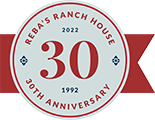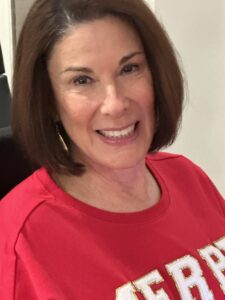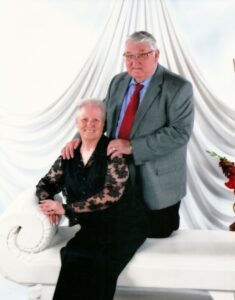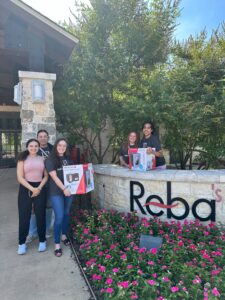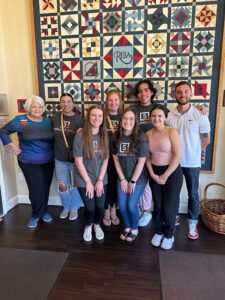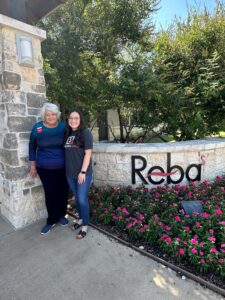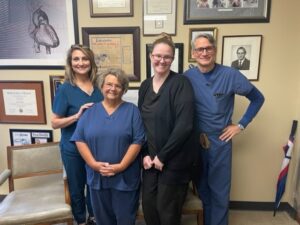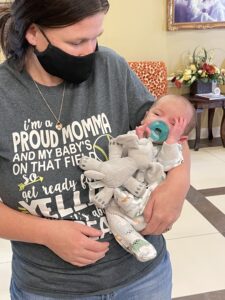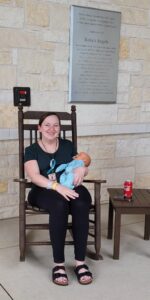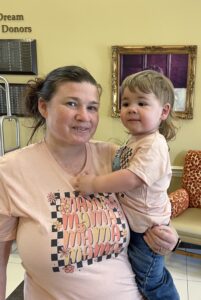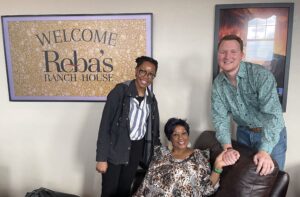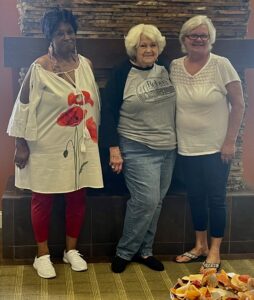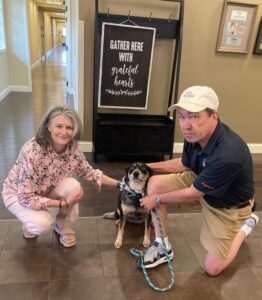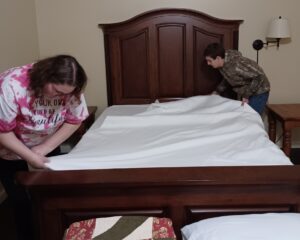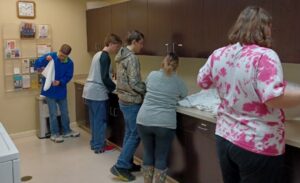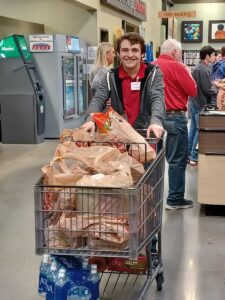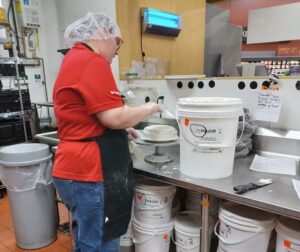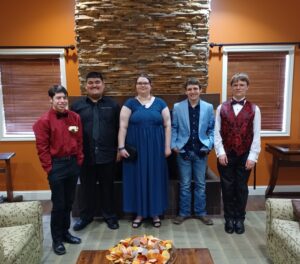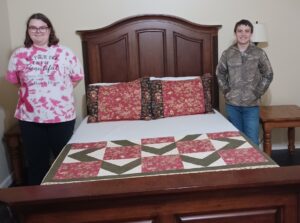By Sarah Elisabeth Sawyer
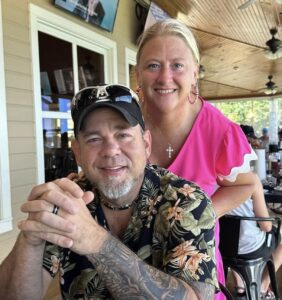
Nothing brings people together like a good meal, especially when that meal is Texas barbecue.
“Everyone loves barbecue,” says Aaron Vogel, owner of Cackle & Oink BBQ along with his wife Andrea. “Barbecue makes people feel better. There’s always a lot to talk about whenever it’s being shared with family and friends.”
Cackle & Oink has served up barbecue to local folks in Sherman—and even Reba McEntire herself—since 2005. But something was on the back of Aaron’s mind for over a decade, a mission he wanted to fulfill after his younger cousin fought and won her battle with cancer 16 years ago.
When Brooke wasn’t doing well, Aaron traveled to North Carolina to be with family. He met up with his uncle and grandparents at the Ronald McDonald House where they stayed awhile.
To his surprise, a girls’ roller derby league came out on their skates to bake and serve lasagna and salad for the house guests. The next night, the local American Legion came and served a meal.
“I thought ‘This is really, really cool,” Aaron says. “I felt like there was something similar Cackle & Oink could do as a business.”
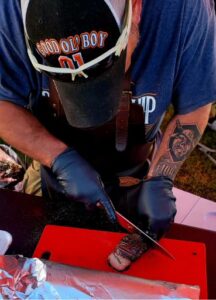
But Aaron wasn’t sure who they could serve…until a customer told him about Reba’s Ranch House.
“When I heard about Reba’s and how close it was, I said, ‘Okay, now’s my time to go contact them,’” Aaron says. “Now, every other Saturday we do box lunches for the ranch house. Sometimes brisket, sometimes pulled pork. If guests have to be at the hospital, the food is in the fridge for them to warm up and eat at their convenience.”
Aaron knows the guests at the ranch house are going through hard times like his family did when Brooke was in the hospital. He wants to make sure they get a good meal, plus barbecue gives the guests something to talk about when they gather around a table at the ranch house kitchen.
“Barbecue brings people together,” Aaron says. “And we put our heart and soul into everything, like the volunteers at the Ronald McDonald House did for us. Whenever you’re cooking for other people, you want to make sure it’s the best you can do.”

Delivering barbecue to the ranch house is just one way Cackle & Oink serves others. For the past five years, they’ve participated in “Hogs for the Cause” in New Orleans to raise funds for those families affected directly by pediatric brain cancer.
Other fundraisers and cook-off competitions have landed them on the Food Network, a feature on America’s Best Restaurants on YouTube, and the local Fox News station and radio.
“I’m just a cook, but my grandpa told me that I would be very fortunate one day because I love to smile and I love to shake peoples’ hands,” Aaron says. “It’s good to welcome people in.”
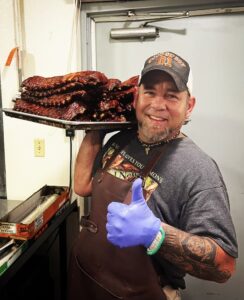
That welcoming spirit enters the ranch house every time Cackle & Oink brings barbecue for the guests.
“I remember what it was like when Brooke was in the hospital,” Aaron says. “I didn’t feel like eating, I didn’t feel like ‘peopling.’ But it was really nice what the volunteers did. That’s the joy I want to bring to Reba’s Ranch House.”


